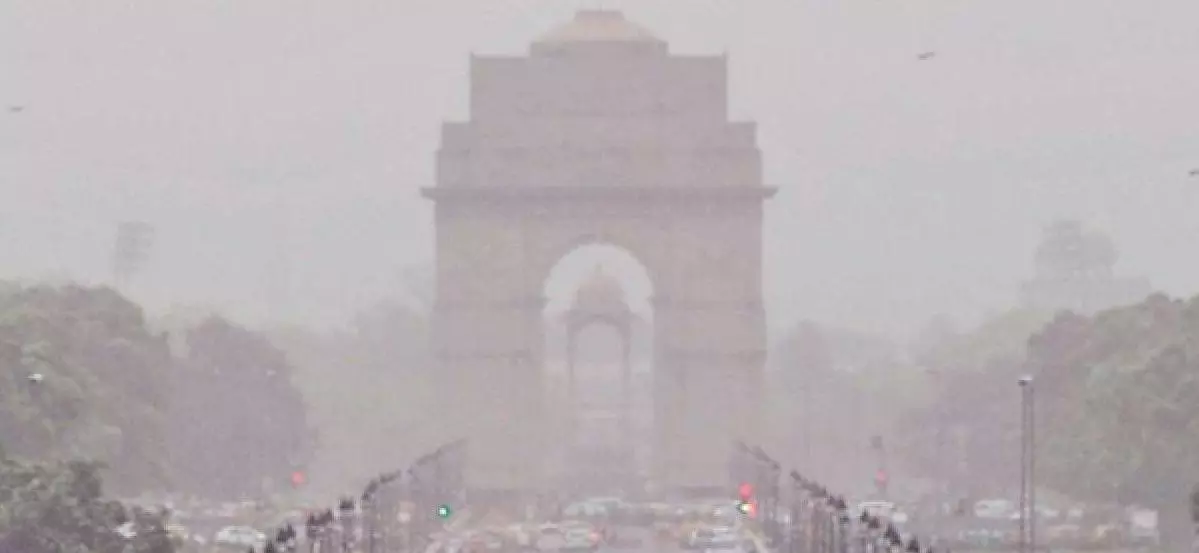
Delhi to combat air pollution with mist sprayers on electric poles
text_fieldsIn a major step toward tackling air pollution, the New Delhi Municipal Council (NDMC) has announced plans to install mist sprayers on electric poles as part of Prime Minister Narendra Modi’s Ease of Living mission.
The initiative aims to create a cleaner, greener, and more pollution-free environment in the NDMC jurisdiction, according to Vice Chairperson Kuljeet Singh Chahal.
He highlighted that this project reflects PM Modi’s vision of improving urban living standards. “This initiative is a significant step towards reducing air pollution and maintaining a sustainable environment,” he said.
In the initial phase, 15 mist sprayers will be installed along a 500-metre stretch of Lodhi Road. Each electric pole will feature five nozzles, with six spray holes per nozzle, creating 30 spray points on each pole. The system will use 81 litres of treated water per pole per hour, supplied by four 5,000-litre tanks. The treated water will be sourced from sewage treatment plants (STPs) to minimise the use of fresh water.
The pilot project is set to roll out next year, with completion targeted within a defined timeline. If successful, the mist sprayer system will be expanded to other key locations, including Shanti Path and Africa Avenue, before a wider implementation across NDMC areas.
In addition to the use of mist sprayers, NDMC has implemented several measures to combat pollution effectively.
Mechanical Road Sweepers (MRS), equipped with GPS tracking, are monitored in real time through the Smart City Integrated Command and Control Centre to ensure efficient road cleaning. Anti-smog guns and spray machines have been deployed to reduce dust and particulate matter in the air. To conserve fresh water, treated water from sewage treatment plants (STPs) is used by water tankers with capacities ranging from 5,000 to 10,000 litres for irrigating roadside greenery. Regular tree plantation drives are conducted to enhance green cover and ensure the maintenance of roadside vegetation. Additionally, strict dust control measures are enforced at construction sites to minimize the generation of particulate matter.
Chahal reiterated NDMC’s dedication to adopting innovative and sustainable measures to combat air pollution. “Our efforts align with the Prime Minister’s vision of a pollution-free India,” he said, adding that Team NDMC remains committed to environmental sustainability through effective and innovative initiatives.























